What are you looking for at Aqrani library?
-
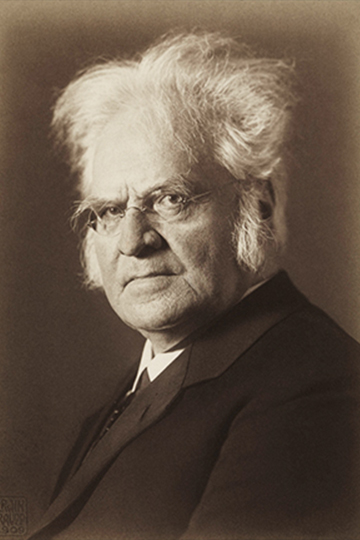
Bjornstjerne Bjornson
Bjørnstjerne Martinius Bjørnson, (8 December 1832 – 26 April 1910) was a Norwegian writer who received the 1903 Nobel Prize in Literature "as a tribute to his noble, magnificent and versatile poetry, which has always been distinguished by both the freshness of its inspiration and the rare purity of its spirit", becoming the first Norwegian Nobel laureate. Bjørnson is considered to be one of The Four Greats (De Fire Store) among Norwegian writers, the others being Henrik Ibsen, Jonas Lie, and Alexander Kielland. Bjørnson is also celebrated for his lyrics to the Norwegian National Anthem, "Ja, vi elsker dette landet". Bjørnson was born at the farmstead of Bjørgan in Kvikne, a secluded village in the Østerdalen district, some sixty miles south of Trondheim. In 1837 Bjørnson's father Peder Bjørnson, who was the pastor of Kvikne, was transferred to the parish of Nesset, outside Molde in Romsdal. It was in this scenic district that Bjørnson spent his childhood, living at the Nesset Parsonage.After a few years studying in the neighbouring city Molde, Bjørnson was sent at the age of 17 to Heltberg Latin School (Heltbergs Studentfabrikk) in Christiania to prepare for university. This was the same school that trained Ibsen, Lie, and Vinje.Bjørnson had realized that he wanted to pursue his talent for poetry (he had written verses since age eleven). He matriculated at the University of Oslo in 1852, soon embarking upon a career as a journalist, focusing on criticism of drama.
-
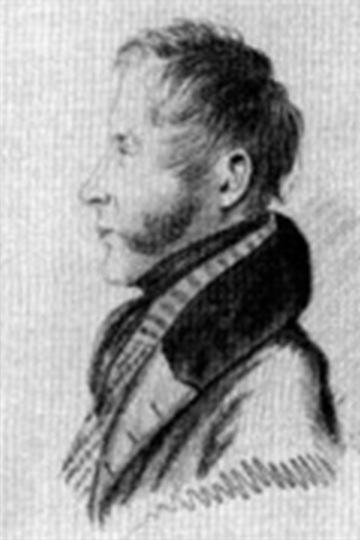
Boucher Belleville (Jean-...
BOUCHER-BELLEVILLE, JEAN-BAPTISTE, called Jean-Philippe, teacher, newspaper owner and editor, Patriote, civil servant, and linguist, b. 8 Sept. 1800 at Quebec, son of Pierre Boucher-Belleville and Louise Belleau, d. 1874 at Saint-Michel-de-Napierville, Quebec.Boucher-Belleville received a classical education at the college of Montreal from 1814 to 1825, and was first a teacher with Siméon Marchessault at Saint-Charles-sur-Richelieu. In 1831 he published at Montreal Les Principes de la langue française, en deux parties, suivis des règles de la versification française, which ran into several editions, and in 1832, Les Principes de la langue latine, en deux parties, suivis des règles de la versification latine. He then tried journalism, and wrote numerous articles in the Montreal newspapers on subjects related to religion, politics, and agriculture.
-
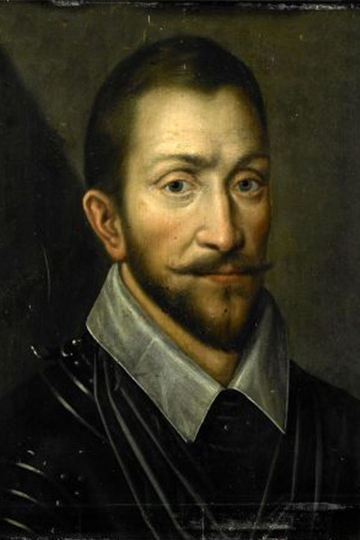
François de La Nouë
François de la Noue (1531 – August 14, 1591), called Bras-de-Fer (Iron Arm), was one of the Huguenot captains of the 16th century. He was born near Nantes in 1531, of an ancient Breton family.He served in Italy under Marshal Brissac, and in the first Huguenot war, but his first great exploit was the capture of Orléans at the head of only fifteen cavaliers in 1567, during the second war. During the third war, at the battle of Jarnac in March 1569 he commanded the rearguard, and at Moncontour the following October he was taken prisoner,but he was exchanged in time to resume the governorship of Poitou, and to inflict a signal defeat on the royalist troops before Rochefort.At the siege of Fontenay (1570) his left arm was shattered by a bullet and later amputated, but a mechanic of La Rochelle made him an artificial iron arm (hence his sobriquet) with a hook for holding his reins. When peace was made in France in the same year, La Noue carried his sword against the Spaniards in the Netherlands, but was taken at the recapture of Mons by the Spanish in 1572.
-
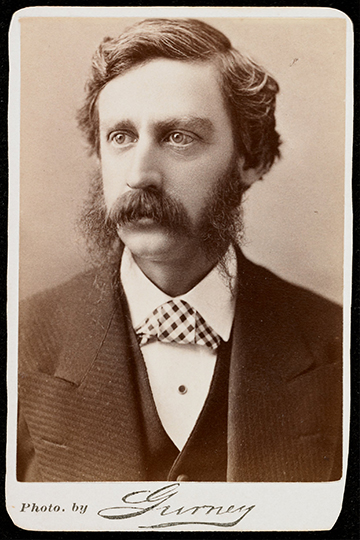
Bret Harte
Bret Harte (born Francis Brett Hart August 25, 1836 – May 5, 1902) was an American short story writer and poet, best remembered for his short fiction featuring miners, gamblers, and other romantic figures of the California Gold Rush. In a career spanning more than four decades, he wrote poetry, plays, lectures, book reviews, editorials, and magazine sketches in addition to fiction. As he moved from California to the eastern U.S. to Europe, he incorporated new subjects and characters into his stories, but his Gold Rush tales have been the works most often reprinted, adapted, and admired.
-

Camille allary
Camille Allary (1852-1889), the poet from Marseilles who died young. The cicadas are there, of course, and the sun of Provence floods the young man but his memories are mostly oriented towards the fragility of life. One never comes out indifferent of one of his poems-memories in prose.
-
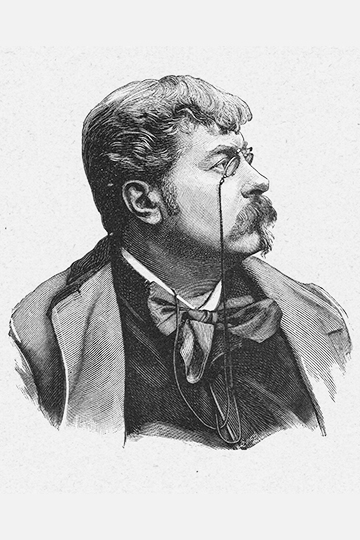
Camille Lemonnier
Antoine Louis Camille Lemonnier (24 March 1844 – 13 June 1913) was a Belgian writer, poet and journalist. He was a member of the Symbolist La Jeune Belgique group, but his best known works are realist. His first work was Salon de Bruxelles (1863), a collection of art criticism. His best known novel is Un Mâle (1881). Lemonnier was born in Ixelles, Brussels.He studied law, and then took a clerkship in a government office, which he resigned after three years. Lemonnier inherited Flemish blood from both parents, and with it the animal force and pictorial energy of the Flemish temperament. He published a Salon de Bruxelles in 1863, and again in 1866. His early friendships were chiefly with artists and he wrote art criticisms with recognized discernment. In 1868 he was a founding member of the Société Libre des Beaux-Arts, an avant-gardist group whose ideals he championed.
-
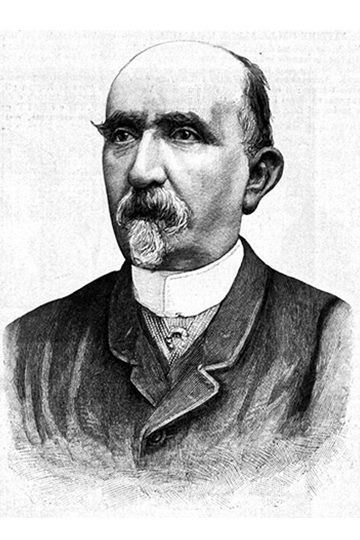
Carlo Collodi
Carlo Lorenzini (24 November 1826 – 26 October 1890), better known by the pen name Carlo Collodi (Italian: [ˈkarlo kolˈlɔːdi]), was an Italian author, humourist, and journalist, widely known for his fairy tale novel The Adventures of Pinocchio. Collodi was born in Florence on 24 November 1826. His mother Angiolina Orzali was a seamstress from the town of Collodi from which he took the pen name and his father Domenico Lorenzini was a cook and both worked for the marchese Ginori Lisci. Carlo was the eldest child in the family and he had ten siblings but seven died at a young age. He spent most of his childhood in the town of Collodi where his mother was born. He lived there with his maternal grandmother. After attending primary school, he was sent to study at a theological seminary called Colle Val d’Elsa. An account at the seminary shows that the marchese had offered financial aid, but the boy found that he did not want to be a priest so he continued his education at the College of the Scolopi Fathers in Florence. In 1844 he started working at the Florentine bookstore Libreria Piatti, where he assisted Giuseppe Aiazzi, a prominent Italian manuscript specialist.
-
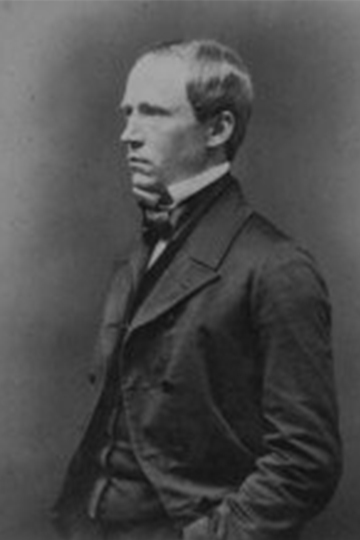
Charles Barbara
Charles Barbara, born in Orléans on March 5, 1817 and died in Paris on September 19, 1866, is a French writer. Louis-Charles Barbara is the son of a luthier from Dausenau (near Koblenz), established in Orléans. After attending the college of his native city, he continued his studies in Paris at the Lycée Louis-le-Grand, to prepare, theoretically, the École Polytechnique and no doubt distance himself from a tyrannical and violent father. He was a coach at the Collège de Nantua, then returned to Paris where he accepted a position as tutor in the family of Édouard Drouyn de Lhuys. In 1841, he made contact with the group of Buveurs d'eau: Henry Murger, the philosopher Jean Wallon, the painters François Tabar and Alexandre Schanne. He provides Murger with the model of the character named Carolus Barbemuche in the Scenes of Bohemian Life. He will never forgive Murger this unflattering portray. He then met Baudelaire, Champfleury, and Nadar, who remained his friends even though he himself was not very expansive. He then turned definitively to journalism and literature, even if music has always played a big role in his life (his father is a luthier, his brother Pierre is a music teacher, his brother Georges is a piano tuner). He plays the violin himself and, to earn a living, performs in small Parisian theatres.
-
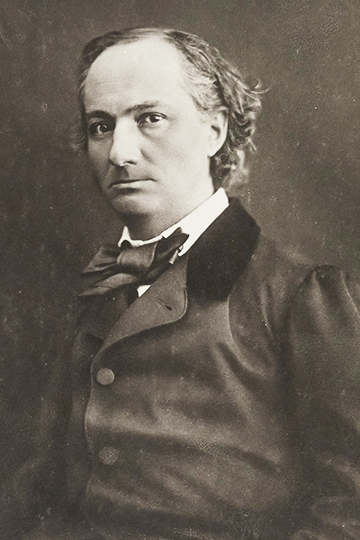
Charles Baudelaire
Charles Pierre Baudelaire (9 April 1821 – 31 August 1867) was a French poet who also produced notable work as an essayist, art critic, and one of the first translators of Edgar Allan Poe. His poems exhibit mastery in the handling of rhyme and rhythm, contain an exoticism inherited from Romantics, but are based on observations of real life. His most famous work, a book of lyric poetry titled Les Fleurs du mal (The Flowers of Evil), expresses the changing nature of beauty in the rapidly industrializing Paris during the mid-19th century. Baudelaire's highly original style of prose-poetry influenced a whole generation of poets including Paul Verlaine, Arthur Rimbaud and Stéphane Mallarmé, among many others. He is credited with coining the term "modernity" (modernité) to designate the fleeting, ephemeral experience of life in an urban metropolis, and the responsibility of artistic expression to capture that experience. Baudelaire was born in Paris, France, on 9 April 1821, and baptized two months later at Saint-Sulpice Roman Catholic Church. His father, Joseph-François Baudelaire (1759-1827), a senior civil servant and amateur artist, was 34 years older than Baudelaire's mother, Caroline (née Dufaÿs) (1794-1871). Joseph-François died during Baudelaire's childhood, at rue Hautefeuille, Paris, on February 10, 1827. The following year, Caroline married Lieutenant Colonel Jacques Aupick, who later became a French ambassador to various noble courts. Baudelaire's biographers have often seen this as a crucial moment, considering that finding himself no longer the sole focus of his mother's affection left him with a trauma, which goes some way to explaining the excesses later apparent in his life. He stated in a letter to her that, "There was in my childhood a period of passionate love for you." Baudelaire regularly begged his mother for money throughout his career, often promising that a lucrative publishing contract or journalistic commission was just around the corner.
-
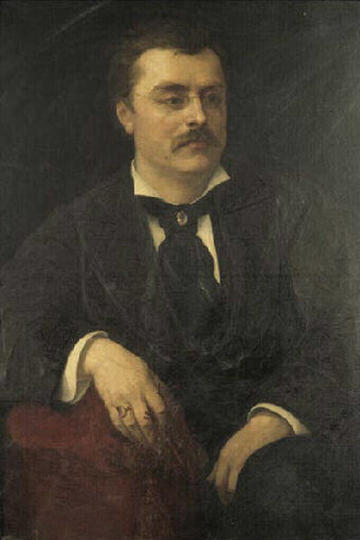
Charles Buet
Charles Buet, born in Chambéry (Savoie) on 23 October 1846 and died in Paris on 23 November 1897, is a French writer and journalist. He was the author of historical novels whose action was often linked to Savoy and its legends. He has written articles under many pseudonyms: Gaston Bois-Dupré, Capitaine Nemo, Vindex, among others. The son of a Saint-Jean-de-Maurienne grocer, Charles Buet was educated at the Collège de Saint Pierre-d'Albigny before studying briefly at the Faculty of Lyon, and becoming a correspondent for the Courrier des Alpes and the Journal de la Savoie. In 1867 he was hired by L'Univers, an ultramontane newspaper and willingly polemical edited by Louis Veuillot. He was also influenced by the Catholic philosopher Ernest Hello.